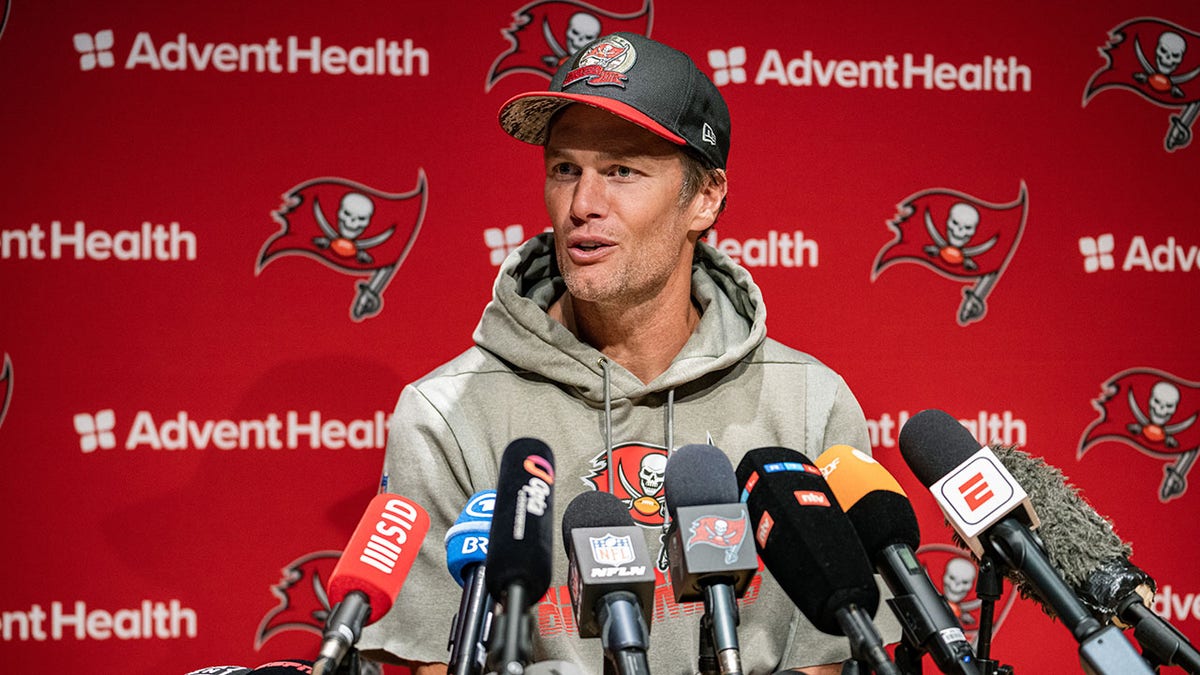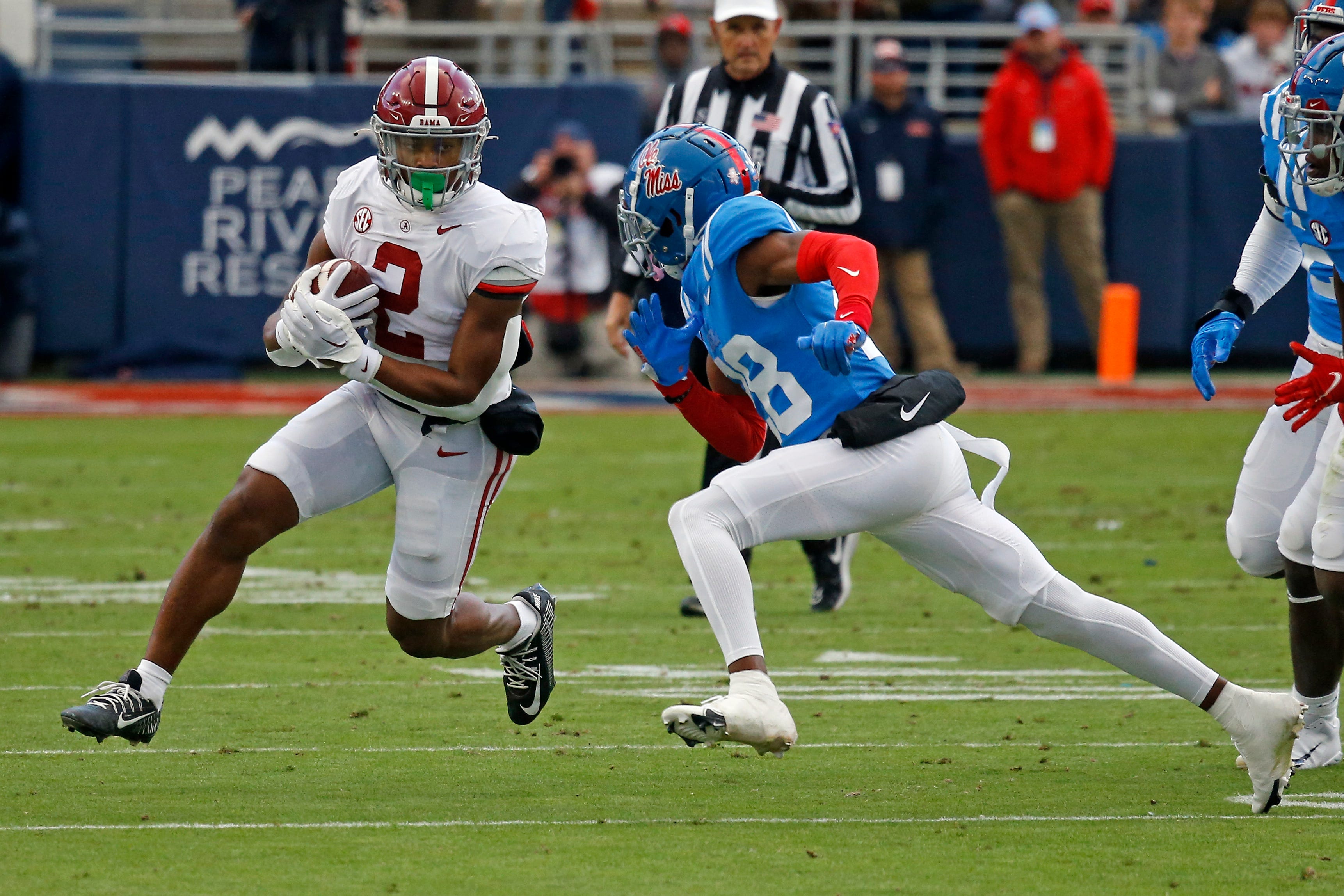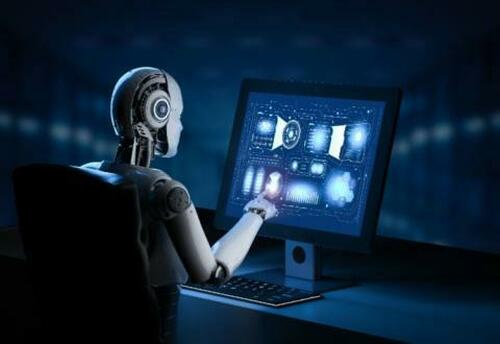Democrat wins Washington swing district in major blow to Trump and GOP
Democrat Marie Gluesenkamp Perez narrowly defeated far-right candidate Joe Kent in Washington state’s 3rd Congressional District — a stinging loss for Republicans and Donald Trump, who endorsed Kent after he embraced the former president’s lies about the 2020 election.
Gluesenkamp Perez, an unknown before the primary, ran as a moderate, rural Democrat and small business owner. The district has been held by Republicans since 2011.
“The people in my district are looking for representation that focuses on finding common ground and delivering results, not the extreme hyperpartisanship and clickbait politics offered by my opponent,” Gluesenkamp Perez said in a statement Saturday.
Kent, meanwhile, told supporters on Twitter on Saturday night that he is not conceding, and urged voters to check the status of their mail-in ballots online. There are approximately 12,000 votes yet to to be counted in the district, but the Associated Press determined that they are not enough to change the outcome for Kent.
Gluesenkamp Perez will replace Rep. Jamie Herrera Beutler (R), whose vote to impeach the former president drew a litany of pro-Trump challengers in the state’s open primary — including Kent, who edged out Herrera Beutler. In the general election, the central question was how Herrera Beutler’s more moderate GOP supporters would vote: further right toward Kent, or slightly left for Gluesenkamp Perez, who holds moderate positions on issues like gun control.
Gluesenkamp Perez attracted some of Herrera Beutler’s supporters to her side, while Kent clinched an endorsement from former Rep. Tulsi Gabbard of Hawaii, who recently left the Democratic Party.
Gluesenkamp Perez walked a tightrope on policy in the right-leaning district, campaigning in favor of abortion rights but also promising to protect Second Amendment rights and to create more logging jobs.
Inflation and crime were top issues in the race, and both candidates argued they were better positioned to represent the geographically and politically diverse district’s economic interests in Congress. Gluesenkamp Perez said she could relate to voters’ fears about crime, reminding them that her own auto shop had been broken into multiple times this year.
Tom Brady gifted Bucs-themed lederhosen, jokes that backup will wear them during game in Munich
The Tampa Bay Buccaneers may be taking this whole playing in Germany thing a bit too seriously.
In a news conference in Munich Friday night, Tom Brady received quite a surprise from a German reporter.
The reporter handed Brady his own TB12 and Bucs-themed lederhosen.
CLICK HERE FOR MORE SPORTS COVERAGE ON FOXNEWS.COM
Lederhosen are basically leather overalls worn as traditional garments in German-speaking countries. Traditionally, they were worn for physical work. They have now become popular to wear at Oktoberfest events — but not yet in NFL games.
“How would that look going out to the game in that?” he said.
Brady isn’t going to wear it, but he has an idea who might.
NFL COMMITTED TO ‘AT LEAST’ FOUR REGULAR-SEASON GAMES IN GERMANY THROUGH 2025, COMMISH SAYS
“Kyle Trask is going to wear that out there,” he joked.
Perhaps the Bucs’ backup QB can start a new tradition.
The Bucs will kick off against the Seattle Seahawks at 9:30 a.m. ET Sunday for the NFL’s first game ever played in Germany.
Week 11 college football winners and losers: Alabama quiets doubters, while Oklahoma sinks deeper
Alabama and Clemson rebounded with wins, while Oklahoma and Kentucky sunk deeper to lead the college football winners and losers from Week 11.
UAE recruited US officials to manipulate government: report
The UAE has been trying to meddle in American politics for decades — even going so far as to employ ex-US intelligence officials to surveil leaders, a new report claims.
https://nypost.com/2022/11/12/uae-has-been-manipulating-us-government-for-decades-report/
Democrats clinch control of US Senate after Cortez Masto wins in Nevada
Democrats will stay in control of the US Senate next year after Democratic US Senator Catherine Cortez Masto won re-election in Nevada, Edison Research projected on Saturday, handing a major victory to President Joe Biden.
Are Robots And AI Really Going To Displace All Workers? Probably Not
Are Robots And AI Really Going To Displace All Workers? Probably Not
Authored by Robert Blumen via The Mises Institute,
Among the components of the World Economic Forum’s Great Reset are a drastically reduced population and the replacement of human labor with robots and artificial intelligence (AI). The question immediately comes to mind: can robots and AI really make all the stuff for the elites after they have gotten rid of the people?
Because a plan has been formulated and described does not mean that it is possible to realize. The plan may contradict laws of logic or reality, or assume the existence of resources that do not exist.
Podcaster and journalist James Delingpole, speaking to investigative journalist Whitney Webb on October 23, 2021, discussed this topic with his guest. I have transcribed several minutes from their conversation, edited for concision:
Webb: The fourth industrial revolution. One of the main pillars of that is automation and artificial intelligence. We’ve already seen that with corporate behemoths, like Amazon’s efforts to replace human workers with robots. Starbucks is piloting their AI barista with plans to have at least one in most if not all locations…. How long until humans are gone entirely? That’s in a retail setting.
In the UK Tesco recently joined the cashier less checkout. It’s all done on your phone. You scan when you enter the store. Everything is tied to you, your unique digital identifier with the corporation. You can just walk out of the store. How convenient that you didn’t have to walk by a cashier at all.
We’re going to see this happen in big ways in manufacturing. Chile is one of the biggest producers of copper in the world. In the northern part of Chile, the economy is driven by mining…. They are automating the mining here [in Chile]. Most of Chile’s middle class in the north work in the mining industry. They are about to all be cut out….
It’s infinitely more profitable for a corporation to make an initial investment in a robot or an AI algorithm than to continuously pay a worker. Not have to deal with sick pay. There are efforts all over the world to demand better worker benefits. Better hours. Robots are the ultimate worker for a lot of these people because they are not interested in the human equation of things. There is a move to a human-free future coupled with anti-human rhetoric.
The substitution of machines for human labor is a process that has been going on since the first industrial revolution. A considerable amount of manufacturing is already done by robots. But does it matter if a machine is a robot or not? Telecommunications switches connect calls that used to be done by telephone operators. We do not identify these machines as robots (perhaps because they do not have a recognizable torso and limbs or perhaps because they perform their work on data rather than physical objects) but the impact on the demand for labor to perform those tasks is the same.
Contrary to Webb, it is not “infinitely more profitable” for a corporation to use an AI-powered robot in place of a person. Profitability is a calculation that depends on the price of the robot, the productivity of the robot, the wages of the person and the productivity of the human worker.
The substitution of capital for labor makes economic sense when the cost of the capital goods per unit value of output—including paying for the entire supply chain—is less than the wages of the person that is replaced.
Yes, workers are paid wages. However, robots and other machines are themselves not free goods. They must be designed, tested, and maintained. They are made of many parts which must be manufactured and transported. The manufacturing process is performed by some combination of people and other machines. The parts are ultimately made from materials that are mostly mined or extracted from the earth, also by men and machines.
Workers prefer better working conditions over worse. And for machines as well there are optimal working conditions. A truck that is driven on poor roads in bad weather will wear out or break down more quickly. Computers need a carefully tuned environment that is temperature and humidity controlled. Computer servers are housed in a complex capital good known as a “data center.”
The wages that are required to hire the workers are determined on the labor market, by the various competing uses for each person’s skills. If the cost of the robot is less than the worker, that is only because their labor is more urgently demanded doing something else. There is a greater need for human labor somewhere else in the world.
AI itself is not inexpensive. Building and running AI requires engineering effort and computing resources such as networks, servers, and storage. AI models are trained by data that must originate with the same human intelligence that the AI is trying to reproduce. If you want to train AI to recognize photographs of cats, someone must have taken the photographs and classified them as cats or “not cats” so that the AI can be validated. If the photos come from security cameras, someone must have installed the cameras.
After the model is built it must be maintained. AI models do not run perfectly forever. They must be monitored for drift, and it requires a human to determine if the drift is due to an error in the ingestion of data, such as a change in units, or a true change in the customer preferences that the model is trying to extract. In the latter case, the model must be retrained on a new data set.
Modern computer systems are built with some degree of self-diagnosing and self-repairing abilities. But the automation must punt all but the most straightforward cases into a call for help that brings a human into the process. Humans are necessary to diagnose problems and restore service when something has gone wrong.
The manufacture of machines such as robots requires a complex structure of production with perhaps tens of thousands of individual parts. Each part must be designed—by a person—manufactured and integrated with the other parts. The integrations, including isolating manufacturing defects, must be tested, and debugged.
Parts are transported by industries such as shipping and trucking. All of these steps involve combinations of labor and capital goods. It is true that people take sick days, however, machines break, wear out, and, and require repairs. The humans who repair the machines also have kids and take sick days. If you need to send the robot out for service, a mover will pack it up and load it on a truck. Self-driving cars? Maybe someday, but not any day soon.
Robots and made out of metals, which are mined out of the ground. Mineral deposits are not straightforward to find, to delineate and to mine. The discovery and extraction of mineral resources is a tremendously high-intellect activity. A small number of exploration geologists—many with doctoral degrees in fields such as geology and geophysics—have discovered a disproportionate fraction of mineable mineral deposits. Without labor, where would the metals come from to build the robots?
Someone like Webb might respond that robots will replace all of these functions as well. And some day, they might. However, the replacement of humans by machines for one task creates a need for labor—with different skills—to operate the machines. That is why we now have jobs for truckers, power plant operators, and machinists instead of wood cutters.
If miners were replaced with robots—how much labor would be required to build the robots including the entire supply chain, transportation, and the energy used to run them? It’s hard to say but a fraction of the impact would be shifts in the type of employment.
Has the substitution of capital for human labor over the centuries since the industrial revolution has reduced overall employment? Not so much. We have far more need for labor now because we have accumulated so much capital and require more labor to operate it. The human population has increased—in lockstep with the demand for human labor—because we are so much more productive with our enormous legacy of capital goods that we can support much more population.
Replacing the most routine and repeatable human labor with machines creates demand for the currently irreplaceable types of labor: creativity and problem-solving skills. It is true that boundaries of what machines can do expands over time. For example, voice recognition, which used to be quite poor, now handles a range of accents much better. However, AI is still at a point where it can at best replicate human learning by observing many samples created by humans. But for anyone who has tried to change their airline ticket by talking to a chat bot, it is clear that AI is at present limited to a standardized set of tasks.
As we can afford it, out of our accumulated savings, capitalists will continue to invest in robots and other forms of automation to replace workers. When this results in cost savings, that means more output at a lower cost, and a rising standard of living. As certain goods become cheaper to manufacture, workers can demand other, new and different goods and services, which feeds the indirect demand for labor in those industries.
Tyler Durden
Sat, 11/12/2022 – 21:20
Arizona Democrat Katie Hobbs maintains small lead in gubernatorial race, contest still too close to call
Arizona Democrat Secretary of State Katie Hobbs maintains her lead in the latest round of ballots reported from Maricopa County, although the gubernatorial race against Republican Kari Lake remains too close to call.
As of Saturday night, Hobbs’ lead over Kari Lake is less than 35,000 votes with the latest round of reported ballots cutting into the Democrat’s lead.
In total, over 85,000 ballots were reported in Saturday night’s round of ballots.
Maricopa County Board of Supervisors Chairman Bill Gates said in an earlier press conference that the majority of remaining votes left to process are mail-in ballots that were dropped off on Election Day.
MIDTERM ELECTIONS 2022: LIVE UPDATES
During a press conference on Saturday, Gates said that the county has begun a mandatory hand count audit of ballots, which is done to ensure that the polling machines are operating correctly.
MIDTERMS SHOWED VOTERS LACK ‘HATRED’ FOR BIDEN THAT CLINTONS AND OBAMA DREW
The Fox News Decision Desk projected on Friday night that Democratic Senator Mark Kelly had won re-election in Arizona. He defeats Republican challenger Blake Masters, who had not yet conceded as of Saturday night.
Gates said that a group of peaceful protesters gathered on Saturday outside the center where votes are being tabulated in Maricopa.
Democrats keep the Senate
Democrats prevailed in the battle for Senate control after incumbent Sen. Catherine Cortez Masto was declared the winner Saturday of her closely contested race in Nevada.
Cortez Masto’s narrow victory over Republican Adam Laxalt night means that the Georgia Senate runoff election next month will merely determine the margin that Democrats have in the chamber, not its balance of power. It ensures that President Joe Biden will have one chamber of Congress in his corner when the lawmakers take the oath of office next year.
The outcome in Nevada came after several suspenseful days of vote counting that favored Cortez Masto and eventually put her over the top. Her win delivered a one-two punch for Democrats in Arizona and Nevada, a pair of battleground states that Republicans had high hopes of flipping.
Republicans remain favored to win the House, though by a smaller margin than anyone expected. While the Senate was a more difficult target for the GOP, the party was confident of taking the chamber, including one prediction by NRSC chief Rick Scott that Republicans would end up with several seats to spare.
The successful reelection bids by Cortez Masto and Kelly lower the stakes of the Dec. 6 Senate runoff election in Georgia. There, Democratic Sen. Raphael Warnock will face retired football star Herschel Walker, after both ran below the required 50 percent mark to win the election outright on Nov. 8.
Unlike the state’s January 2021 Senate runoff, next month’s election won’t decide control of the chamber — but it will determine whether Democrats pad their narrow majority by a seat. If Warnock wins, Democrats will have 51 senators in 2023. If Walker prevails, the Senate will remain 50-50 for another two years, with Vice President Kamala Harris breaking the tie.
Republicans needed to flip only one seat in 2022 to take control of the chamber, but the party suffered a setback when Pennsylvania Lt. Gov. John Fetterman defeated celebrity doctor Mehmet Oz to flip the state’s open Senate seat. The race was one of four this November where a Senate candidate backed by former President Donald Trump lost.
In Arizona, millennial venture capitalist Blake Masters was defeated by Kelly, while former Nevada Attorney General Adam Laxalt lost to Cortez Masto. In New Hampshire, retired Army Brig. Gen. Don Bolduc suffered a nearly 10-point defeat against Democratic Sen. Maggie Hassan.
Democrats’ ability to hold their Senate majority this midterm defied both historic precedent and widely held expectations. They did so despite President Joe Biden remaining deeply unpopular, 40-year record-high inflation, soaring gas prices and a chaotic withdrawal of U.S. troops in Afghanistan that resulted in 13 military deaths.
The GOP Senate losses have prompted intraparty fighting, as Republicans point fingers at Trump, National Republican Senatorial Committee chairman Rick Scott and Senate Minority Leader Mitch McConnell. Scott and McConnell have engaged in a power struggle throughout the election cycle, with McConnell suggesting Scott’s committee should have done more to prevent unpopular candidates from clinching the nomination. Scott went rogue, meanwhile, and announced a 12-point policy plan that didn’t get buy-in from McConnell or other members of GOP leadership.
McConnell this summer described the party’s slate of nominees as suffering from “candidate quality” issues — a description born out in public polling that showed many of this year’s Senate Republican hopefuls unpopular or largely unknown by the electorate. Oz and Vance struggled for months to build trust with Republican voters after particularly grueling and contentious primaries, and Democrats ultimately succeeded at portraying the television doctor as a wealthy Hollywood elite who swooped into Pennsylvania for a shot at power.
The GOP base’s cool reception to some candidates came with major financial implications. Republican nominees struggled to raise money in the general election, forcing top super PACs like the McConnell-aligned Senate Leadership Fund to spend $240 million boosting candidates. Some of those funds — $37 million to Ted Budd in North Carolina, and $32 million to Vance — went to helping struggling nominees in states the party thought would be easy to defend this year. That meant diverting money away from places the GOP had eyed earlier in the cycle as difficult-but-doable pickups, such as Colorado and Washington.
SLF also pulled its funds out of Arizona and New Hampshire, two competitive states the super PAC said were no longer winnable with the party’s nominees. The decision drew the ire of top conservatives, who said cutting off funding from Masters and Bolduc was retaliation for the candidates not pledging support for McConnell.
While Republicans threw some money at Colorado and Washington, they ultimately suffered double-digit defeats in both.
Despite Democrats holding the Senate, Biden still faces the prospect of governing a divided Congress.
Republicans are favored to narrowly capture the majority in the House, where a number of races remain uncalled. And if the Senate remains split 50-50, Biden may again have to contend with dissension within his party from Sens. Joe Machin and Kyrsten Sinema.
Biden has pledged to work with Republicans.
“Regardless of what the final tally in these elections show — and there’s still some counting going on — I’m prepared to work with my Republican colleagues,” Biden said during a press conference last week. “The American people have made clear, I think, that they expect Republicans to be prepared to work with me as well.”
https://www.politico.com/news/2022/11/12/senate-control-midterm-elections-results-2022-00066547
Nevada’s Catherine Cortez Masto will win reelection
Democratic Sen. Catherine Cortez Masto will win reelection in Nevada, CNN projects, clinching a critical victory that will allow Democrats to keep control of the US Senate.
https://www.cnn.com/2022/11/12/politics/catherine-cortez-masto-nevada-senate/index.html
University of Michigan police conclude investigation into Michigan State brawl
University of Michigan police finished up their investigation into the Michigan State-Michigan football brawl that occurred on Oct. 29.









